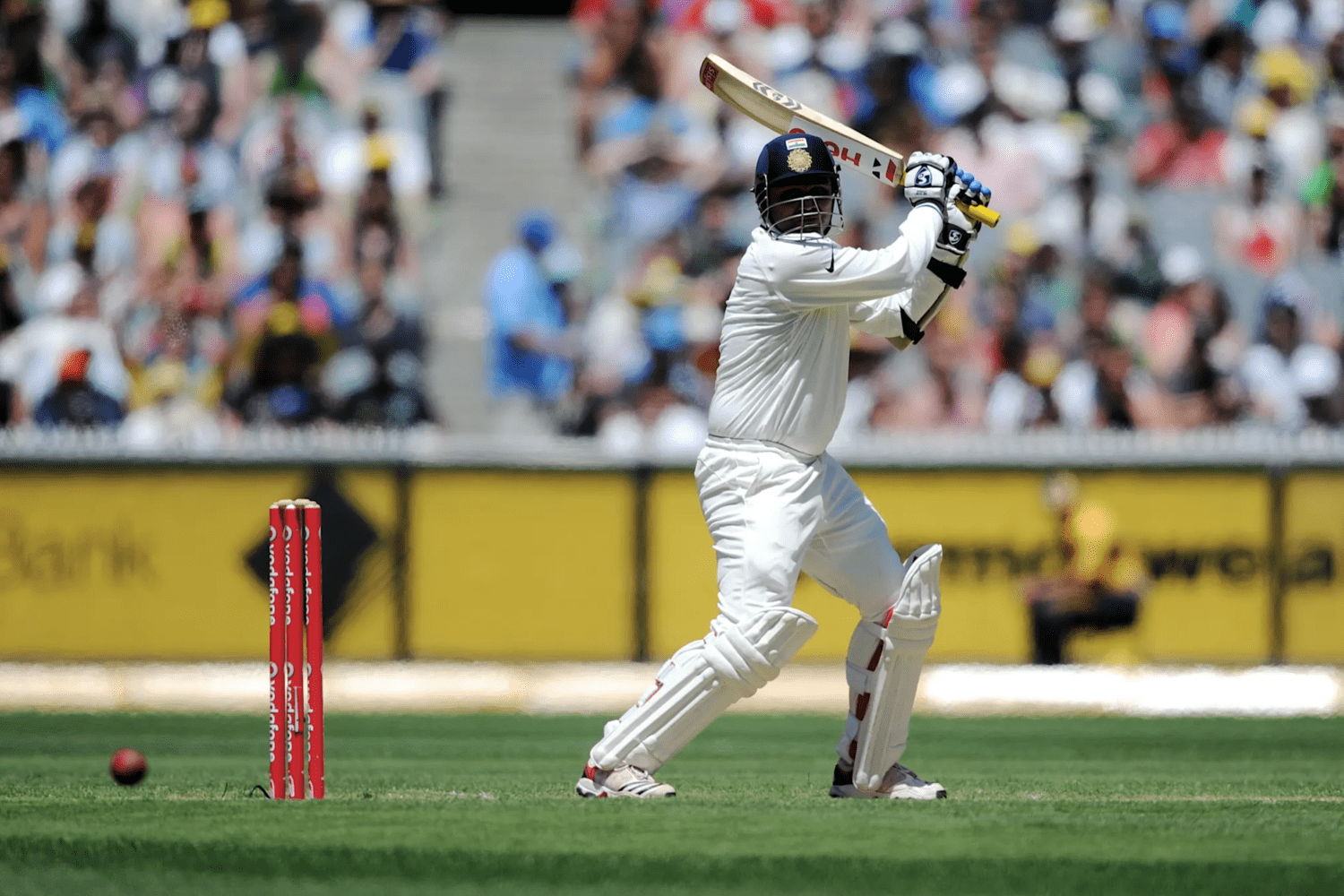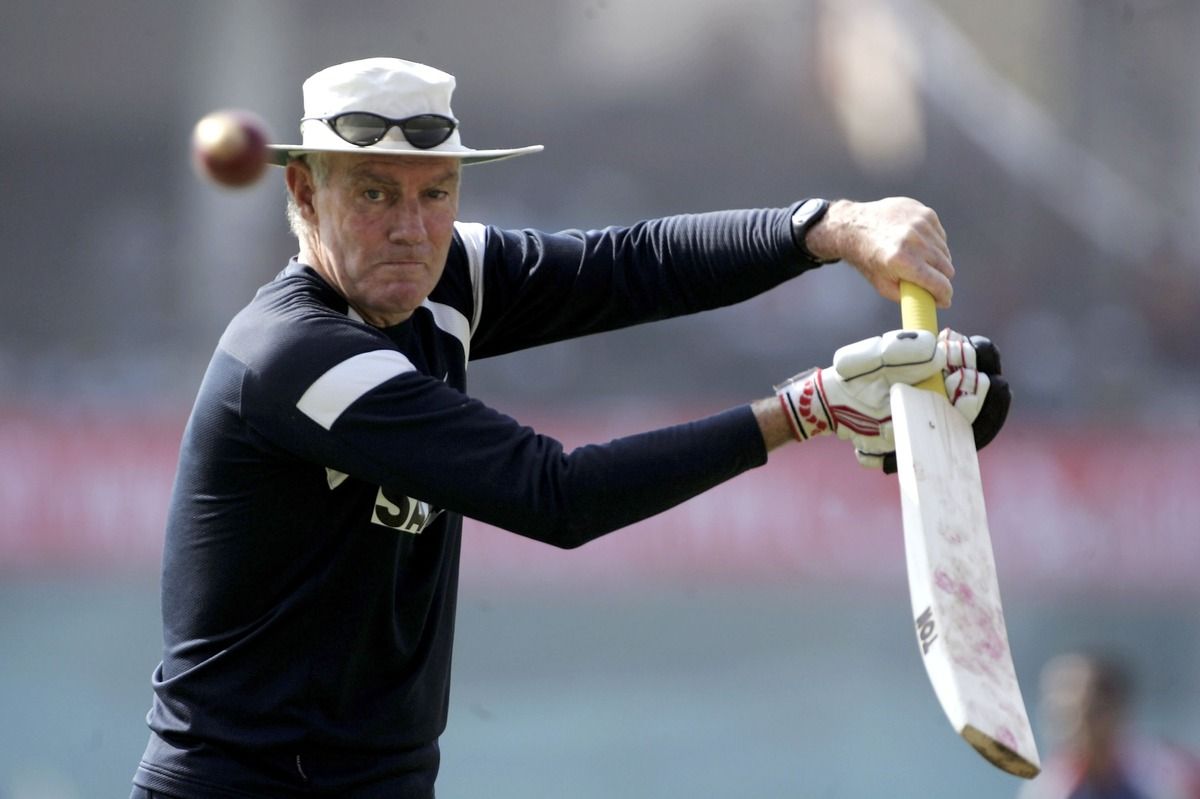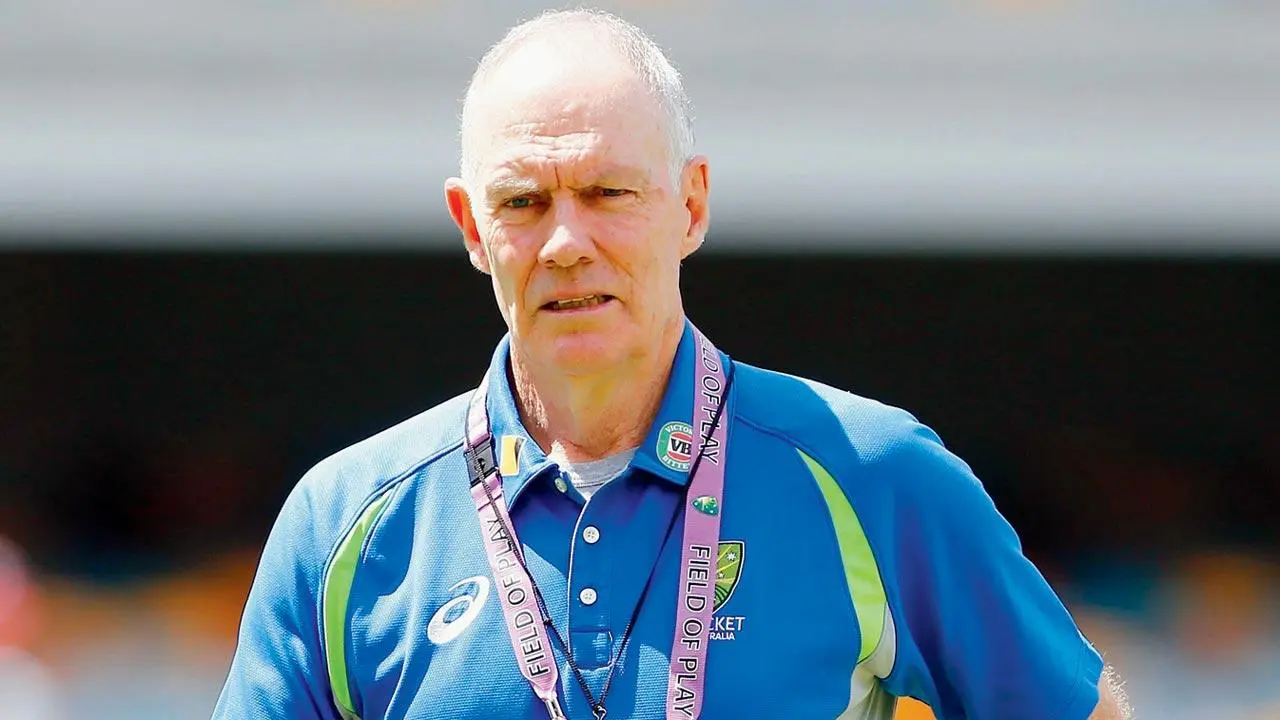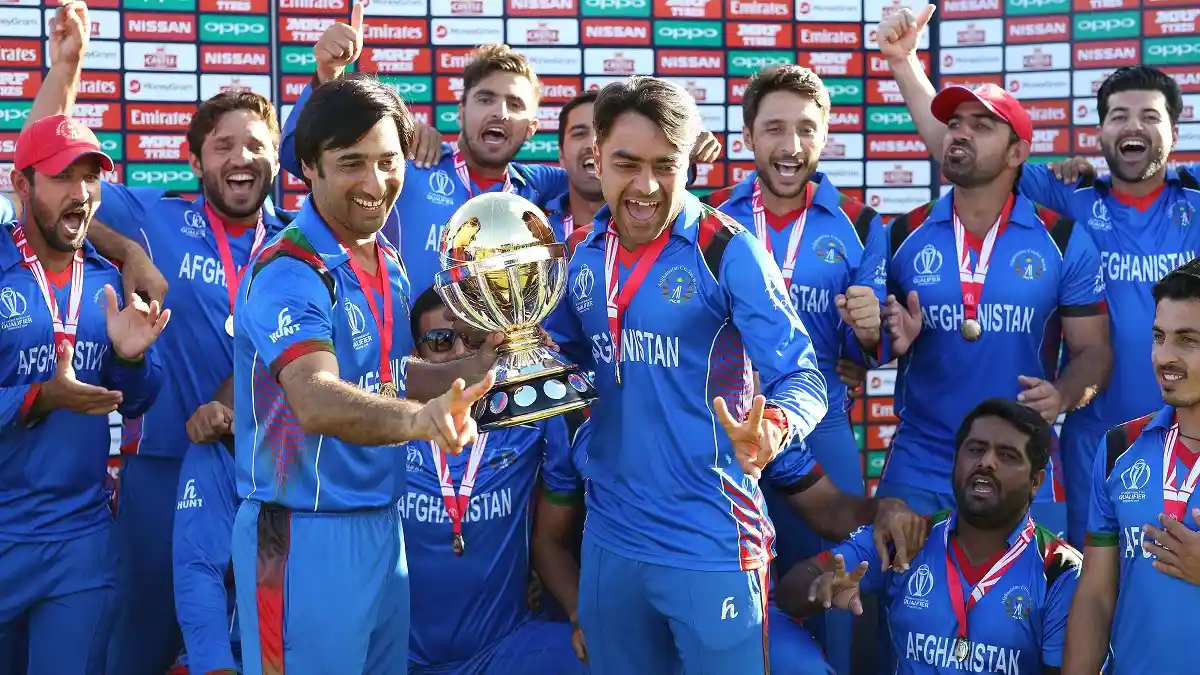Greg Chappell, born on August 7, 1948, in Adelaide, Australia, is a name synonymous with cricket greatness.
Hailing from a family steeped in cricketing talent, with his brother Ian Chappell and younger sibling Trevor Chappell also making waves in the cricketing world, Greg carved his own path to cricketing stardom.
Renowned for his exceptional technical prowess and leadership skills, Greg Chappell emerged as one of the finest all-round players in the history of the sport.
His illustrious career saw him don the captain’s hat for Australia in 1975, propelling the team to unprecedented success on the international stage.
While his on-field exploits dazzled cricket enthusiasts, Chappell’s legacy also bears the mark of controversy, notably his involvement in the infamous underarm bowling incident against New Zealand in 1981, which sparked a rule change in cricket.
Beyond his playing days, Greg Chappell transitioned into cricket management, serving as the coach of the Australian cricket team from 2005 to 2007.
Despite facing scrutiny and criticism during his tenure, Chappell’s contributions to cricket, both on and off the field, remain indelible, cementing his status as a revered figure in the annals of the sport.
- Cricket Dynasty Origin: Greg Chappell emerged from a family rich in cricket heritage, with both his brother Ian and Trevor making significant contributions to the sport.
- Cricketing Excellence: Known for his exceptional technique and leadership, Chappell became one of cricket's finest all-rounders, leading Australia to numerous victories.
- Captaincy and Success: Taking over as Australia's captain in 1975, he guided the team to remarkable international success.
- Controversy: His career was not without controversy, most notably the underarm bowling incident against New Zealand in 1981, which led to a change in cricket rules.
- Beyond Playing: After retiring, Chappell contributed to cricket as a coach, including for the Australian national team, and through various roles in cricket management and commentary.
- International Stardom: Chappell's international career was marked by significant achievements, including scoring a century on both his Test debut and in his final Test match.
- Leadership Style: His leadership was admired for its strategic depth and ability to inspire, though it also faced criticism and controversy, especially following the underarm incident.
- Legacy in Cricket: Beyond his playing days, Chappell's impact continued through coaching, commentary, and cricket administration, shaping future generations and the sport itself.
- Mentorship: His commitment to mentoring young talent has left a lasting legacy in the cricket world, influencing many beyond his immediate reach.
- Enduring Influence: Despite controversies, Chappell's contributions to cricket are undeniable, making him a revered figure in the sport's history and reflecting the evolution and enduring spirit of cricket.
Greg Chappell International Stardom

Greg Chappell rose to international stardom through a remarkable cricketing journey marked by unparalleled achievements and a masterful display of skill.
Making his Test debut in 1970, Chappell left an indelible mark with a century, signaling the emergence of a cricketing prodigy.
His early career showcased flashes of brilliance, hinting at the greatness to come. Throughout his Test career, Chappell’s bat wielded magic, with each innings etching his name deeper into cricketing folklore.
Highlights abound, from his impeccable technique to his ability to dominate bowlers with finesse.
Notably, he etched his name in history by becoming the first batsman to score a century in both his debut and final Test match, a testament to his longevity and enduring excellence.
Chappell’s legacy transcends mere statistics; it embodies the essence of cricketing prowess and the unwavering dedication of a true maestro.
Leadership and Controversies

Greg Chappell’s leadership in cricket was both illustrious and contentious, defined by his Ashes triumphs and a leadership style that evoked both admiration and controversy.
As captain, Greg Chappell orchestrated memorable victories against England in the Ashes series, earning praise for his strategic acumen and ability to inspire his team to greatness.
His leadership style was characterized by a blend of tactical astuteness and a demanding yet motivating demeanor, earning him respect from teammates and opponents alike.
However, Chappell’s tenure as captain was not without its controversies, chief among them being the infamous underarm bowling incident during a One Day International match against New Zealand in 1981.
In a move that sparked outrage and condemnation from the cricketing world, Greg Chappell instructed his younger brother Trevor to deliver the final ball of the match underarm, denying the Kiwi batsman the chance to hit a six and tie the game.
The incident was widely viewed as unsportsmanlike and tarnished Chappell’s reputation as a fair and honorable leader.
The fallout from the underarm bowling incident was significant, leading to widespread criticism of Greg Chappell and the Australian team.
Cricket fans and pundits alike decried the act as a betrayal of the spirit of the game, prompting calls for disciplinary action against Chappell and a reevaluation of cricketing ethics.
While Chappell maintained that his decision was strategic rather than malicious, the incident cast a shadow over his career and sparked debates about sportsmanship and the line between competitive spirit and unsporting conduct.
Legacy and Life After Cricket

Greg Chappell’s legacy in cricket extends far beyond his illustrious playing days, encompassing a multifaceted career that has left an indelible mark on the sport.
Following his retirement from playing, Greg Chappell transitioned into various roles within cricket, cementing his status as a respected figure both on and off the field.
One significant aspect of Chappell’s post-playing career is his foray into coaching and mentorship.
Drawing upon his wealth of experience as a player, Greg Chappell served as a coach for various teams, including the Indian national cricket team.
His coaching stints were marked by a commitment to excellence and a dedication to nurturing young talent, earning him praise for his innovative approach and strategic insights.
In addition to coaching, Greg Chappell found success as a cricket commentator, providing insightful analysis and commentary during matches.
His articulate and knowledgeable commentary endeared him to cricket fans worldwide, further solidifying his reputation as a cricketing luminary.
Beyond his roles in coaching and commentary, Greg Chappell also made significant contributions to cricket administration.
He served as a selector for various cricketing bodies, using his keen eye for talent and understanding of the game to shape the future of cricketing teams.
His involvement in cricket administration underscored his continued commitment to the growth and development of the sport.
Furthermore, Chappell’s legacy is characterized by his dedication to mentorship, as he mentored numerous young cricketers, imparting wisdom and guidance gleaned from his own storied career.
His influence extended beyond the boundaries of the cricket field, shaping the lives and careers of aspiring cricketers around the world.
Conclusions
Greg Chappell’s journey through the annals of cricket history is one of exceptional talent, leadership, controversy, and eventual transcendence to a guiding force for future generations.
Born into a cricketing dynasty, Chappell not only lived up to the familial legacy but also carved out his own niche as one of the sport’s all-time greats.
His cricketing prowess, marked by a blend of technical mastery and strategic acumen, set new benchmarks in the international arena, making him a feared and respected figure across cricketing nations.
As captain of the Australian cricket team, Greg Chappell led with a mix of inspirational vision and a sometimes polarizing rigor.
His tenure was punctuated by memorable victories but also marred by the underarm bowling incident, a moment that would become one of the sport’s most debated ethical dilemmas.
This incident, while casting a shadow over his captaincy, also sparked necessary conversations about sportsmanship and the spirit of cricket, underscoring the complex interplay between competitiveness and fair play that defines sports at the highest level.
Transitioning from the field to roles in coaching, commentary, and cricket administration, Chappell’s influence on cricket has been pervasive and enduring.
His commitment to nurturing young talent and his strategic insights into team building and player development have left an indelible mark on the teams he has coached and mentored.
As a commentator, his deep understanding of the game and articulate analysis have enriched the viewing experience for fans worldwide.
Greg Chappell’s legacy is multifaceted—a testament to a life devoted to cricket. It spans the spectrum from the heights of athletic brilliance to the depths of controversy, and ultimately to a redemptive arc in shaping the sport’s future.
His story is a compelling narrative of triumph, challenge, and the unyielding influence of a true cricketing luminary.
Through the ebbs and flows of a storied career, Chappell’s contributions to cricket remain undeniable, securing his place among the pantheon of cricket’s greatest figures.
His journey reflects the evolution of the sport itself, marked by moments of brilliance, debate, and ongoing transformation, emblematic of cricket’s enduring allure and its capacity to inspire and evolve across generations – Greg Chappell.
Frequently Asked Questions (FAQs)
What made Greg Chappell one of cricket's all-time greats?
Greg Chappell is considered one of cricket’s all-time greats due to his exceptional technical prowess, strategic acumen, and leadership skills.
His career was distinguished by significant achievements, including becoming the first batsman to score a century in both his debut and final Test matches.
His ability to dominate bowlers and his contributions to Australian cricket, both as a player and as a captain, underscore his greatness in the sport.
What was the underarm bowling incident, and how did it affect Greg Chappell's career?
The underarm bowling incident occurred during a One Day International match against New Zealand in 1981.
Greg Chappell instructed his brother Trevor to deliver the final ball of the match underarm, preventing the New Zealand batsman from potentially hitting a six to tie the game.
This move sparked widespread outrage and condemnation, being seen as against the spirit of the game.
While Chappell maintained the decision was strategic, the incident tarnished his reputation as a fair and honorable leader and sparked debates about sportsmanship in cricket.
How did Greg Chappell contribute to cricket after retiring as a player?
After retiring as a player, Greg Chappell made significant contributions to cricket in various roles, including coaching, commentary, and cricket administration.
He served as the coach of the Australian cricket team and the Indian national cricket team, where he was known for his commitment to excellence and dedication to nurturing young talent.
Chappell also found success as a cricket commentator, providing insightful analysis during matches.
Furthermore, his work as a selector for various cricketing bodies and his dedication to mentorship have helped shape the careers of many aspiring cricketers, ensuring his legacy in the sport continues to influence future generations.



























